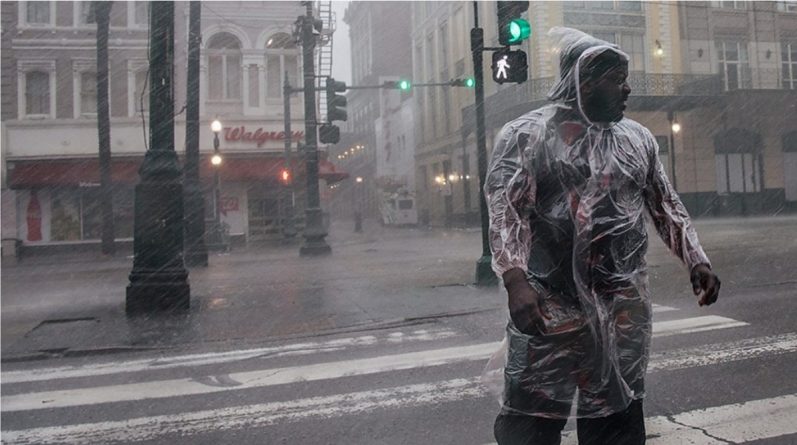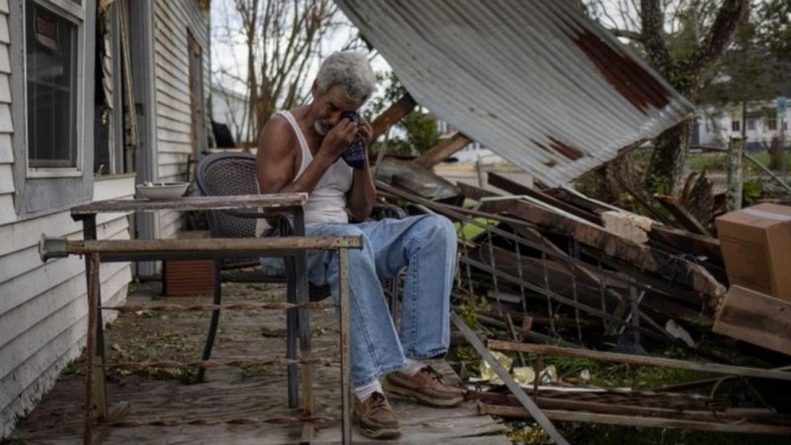
Hurricane Ida hit the Louisiana coast and caused enormous destruction, leaving about 2 million people without power. Officially, one person died, but the state governor believes that there will be more victims. Read today in USA.ONE:
The devastating consequences of Hurricane Ida
Houses without power, water shortages, destroyed neighborhoods and a collapsed highway.
Hurricane Ida passed in Louisiana 
 photo: rambler.ru
photo: rambler.ru
According to the US National Hurricane Center, on Sunday, August 29, wind gusts reached 240 km/h, which is why the hurricane was assigned a category 4 out of 5 on the Saffir-Simpson scale . By the morning of August 30, it weakened to category 1. The maximum wind speed was recorded at 120 km/h.
At first, it was reported that a million people lost electricity, but on the morning of Monday, August 30, Louisiana Governor John Bel Edwards said in a television interview that a million are just de-energized meters, and there could be as many as 2 million people in houses without electricity.
Without electricity, pumps do not work, so people also faced interruptions in drinking water. As for the victims of Hurricane Ida, at the moment we know only about a man who died in the vicinity of the state capital of Baton Rouge — a tree fell on his house. At the same time, according to the governor, the number of victims may increase as soon as rescuers reach the most severely affected areas and clear the rubble.

 photo: Reddit
photo: Reddit
John Bel Edwards also said that the entire state National Guard, including 34 helicopters and airplanes, and 200 all-terrain vehicles, is participating in the aftermath of the hurricane. Hurricane Ida tested the strength of New Orleans' flood defenses, which were improved after Hurricane Katrina, which killed 1,800 people in 2005.
Local authorities have assured that the expensive system has paid off: the city is not flooded like it was 16 years ago. At the same time, New Orleans was plunged into darkness, and the famous French Quarter was covered with tree branches and debris. It is impossible to go outside: rain and wind gusts of up to 100 km/h knock rare passers-by off their feet. Most residents, on the advice of the authorities, do not leave their homes. They are accustomed to hurricanes becoming a part of their lives.
Millions of dollars have been spent on new dams and so far they are coping with the load. However, New Orleans is warning of flash flooding. More than 29 thousand people in Mississippi and Alabama, neighboring Louisiana, were also left without electricity. It may take weeks to restore power supply.

 photo: bbc.com
photo: bbc.com
In addition, on Tuesday, August 31, a message was received about the death of 2 and the injury of 10 people due to the collapse of a highway in Mississippi. The reason was heavy rains caused by Hurricane Ida. According to the highway patrol, three of the wounded are in serious condition. The collapse affected a section of Highway 26 in George County, 53 miles from Biloxi. Media reported that 7 cars fell into a 50-foot ditch created by the collapse of the highway.
Strong winds also tore off part of the roof from a hospital in the town of Cut Off, Louisiana, near the Gulf of Mexico. Despite the serious damage, no patients were harmed. Due to the COVID-19 epidemic, there is nowhere to evacuate them, since all hospitals are overloaded. In addition, due to Hurricane Ida, oil production in the Gulf of Mexico stopped. Power outages and flooding are preventing energy companies from assessing damage at oil production sites, refineries and ports.
Tropical Storm Ida formed last week in the Caribbean Sea, but became a hurricane as advance west from Cuba into the southern Gulf of Mexico. Ida hit the Louisiana coast on the 16th anniversary of Hurricane Katrina. It is estimated to be one of the most powerful hurricanes to ever sweep through the Gulf of Mexico.
The National Weather Service urges New Orleans residents to stay indoors and in rooms without windows.
Like this article? Share it with your friends on social networks and come to us for more new materials!